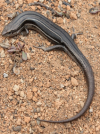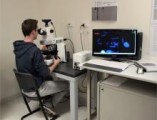
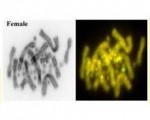
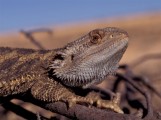
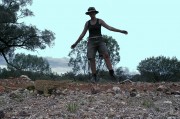
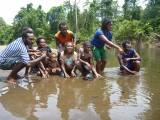
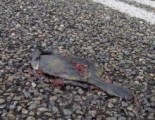
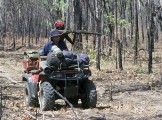
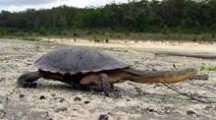

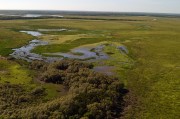
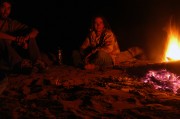
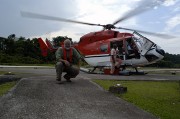
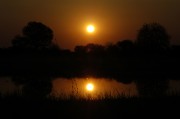
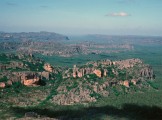
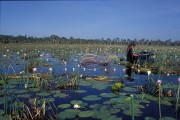
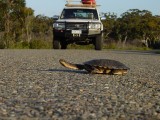
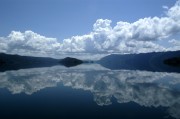
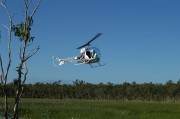
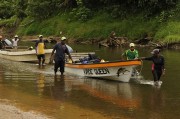
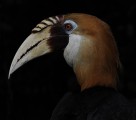



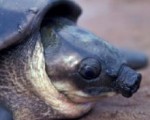
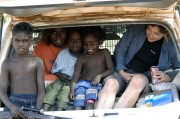

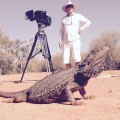


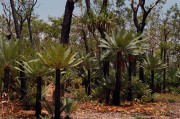


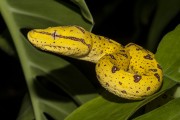
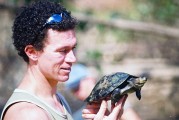
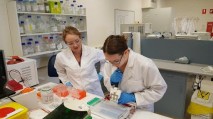
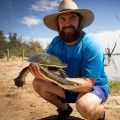
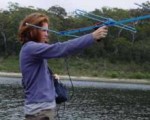
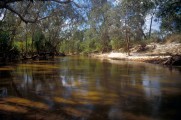
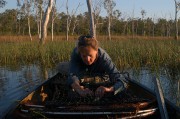

NewsBlog
Population Genomics in R -- 2019 Workshop
Posted in Education and Outreach on Apr 04, 2019
Publications addressing population genetics using single nucleotide polymorphisms (SNPs) are on the rise, indeed exponentially on the rise. If you are interested in analysing SNP data to answer that pressing PopGen question, there is an upcoming workshop that might be of interest to you. It is in Hobart (Australia) in April of 2019. You can express early-bird interest in attending by reading on and clicking the relevant link.
Representational genome sequencing for bacterial pathogen identification
Posted in Uncategorized on Mar 27, 2019
Bacterial identification methods used in routine identification of pathogens in medical microbiology can include a combination of biochemical tests, mass spectrometry, barcode sequencing (16S) or whole genome sequencing. in a paper that came out today in the Journal of Microbial Methods, PhD student Berenice Talamantes explores the utility of reduced representation sequencing for the identification of bacterial pathogens. She has also applied the technique to environmental microbes in work yet to appear.
Hemiclonal Gudgeons -- for those who thought sex was simple
Posted in Uncategorized on Mar 19, 2019
In a paper that appeared this week in Scientific Reports, Peter Unmack and his colleagues describe work on a hemiclonal 'ghost' lineage of gudgeons from south eastern Australia. They identified a vulnerable sexual population of gudgeons that is involved in two hemiclonal lineages, and provide perspectives on several important issues not previously explored by other studies on ghost species, but relevant to their detection, conservation, and artificial recreation.
SNPs Breathe New Life into Species Delimitation of a difficult Taxon
Posted in Turtle Research on Dec 15, 2018
In a recent paper in Molecular Ecology on species delimitation, we invoke the age-old criterion of diagnosability to identify lineages that are candidates as name-bearing taxa. For SNP markers, fixed allelic differences between populations or metapopulations provide diagnosability. We apply these markers to a case study of a freshwater turtle, Emyduro macquorii, whose systematics has so far defied resolution, to bring to light a dynamic system of substantive allopatric lineages diverging on independent evolutionary trajectories, but held back in the process of speciation by low level and episodic exchange of alleles across drainage divides on various timescales.
Australian Turtle on the Brink
Posted in Turtle Research on Nov 30, 2018
The Bellinger River Sawshell, *Myuchelys georgesi*, is facing some serious challenges. In an article that appeared this week in the journal Endangered Species Research, we report the disturbing observation that the endangered endemic *Myuchelys georgesi* is hybridizing in the wild with the locally introduced *Emydura macquarii*, which threatens Its very existence.
Feral Cat takes Niña
Posted in Pogona Research on Nov 28, 2018
A recent incident involving a feral cat and one of our treasured dragon lizards near Cunnamulla in western Queensland serves to highlight the impact feral cats are having on the Australian environment. PhD students Kris Wild and Phil Pearson tell the story.
New insights to reptile sex
Posted in Pogona Research on Jul 04, 2018
Male or female? In many reptiles sex determination is temperature-dependent. But how this works has been a mystery for 50 years... New insights have emerged from work by Chutian Ge and his collegues who show that ancient conserved epigentic machinary is involved in the thermosensitive regulation of key sex genes. Team Pogona was asked to provide a perspective on the new findings. We have received many enquiries since. In this post, we explain more fully what we believe is going on.
Writers' Retreat
Posted in Education and Outreach on Jun 24, 2018
Science is not complete until the results are published. This week, a small group of scientists from the University of Canberra have gathered at Kioloa, on the coast of NSW, to mount a collective assault on writers' block, to put their heads down and write that paper. Some good science, some good fun, and some good outcomes.
dartR -- an R package for SNP data
Posted in Uncategorized on May 14, 2018
Our exciting new R package that appeared recently in Molecular Ecology Resources -- dartR for facilitating analysis of SNP data generated from reduced representation genome sequencing -- has had an upgrade. We are pleased to announce that version 1.0.5 has now been uploaded to CRAN, and has a number of new features -- population assignment, links to PAUP SVDQuartets analysis, improved fixed difference analysis and other new features.
National Geographic funds lizard sex
Posted in Pogona Research on Mar 15, 2018
Congratulations to IAE student, Duminda Dissanayake, on receiving a grant from the National Geographic to progress understanding of sex reversal by temperature in the three-lined skink and to advance broader implications of sex reversal more generally. Sex reversal in the XX/XY skink complements sex reversal in the ZZ/ZW dragon very nicely indeed.









